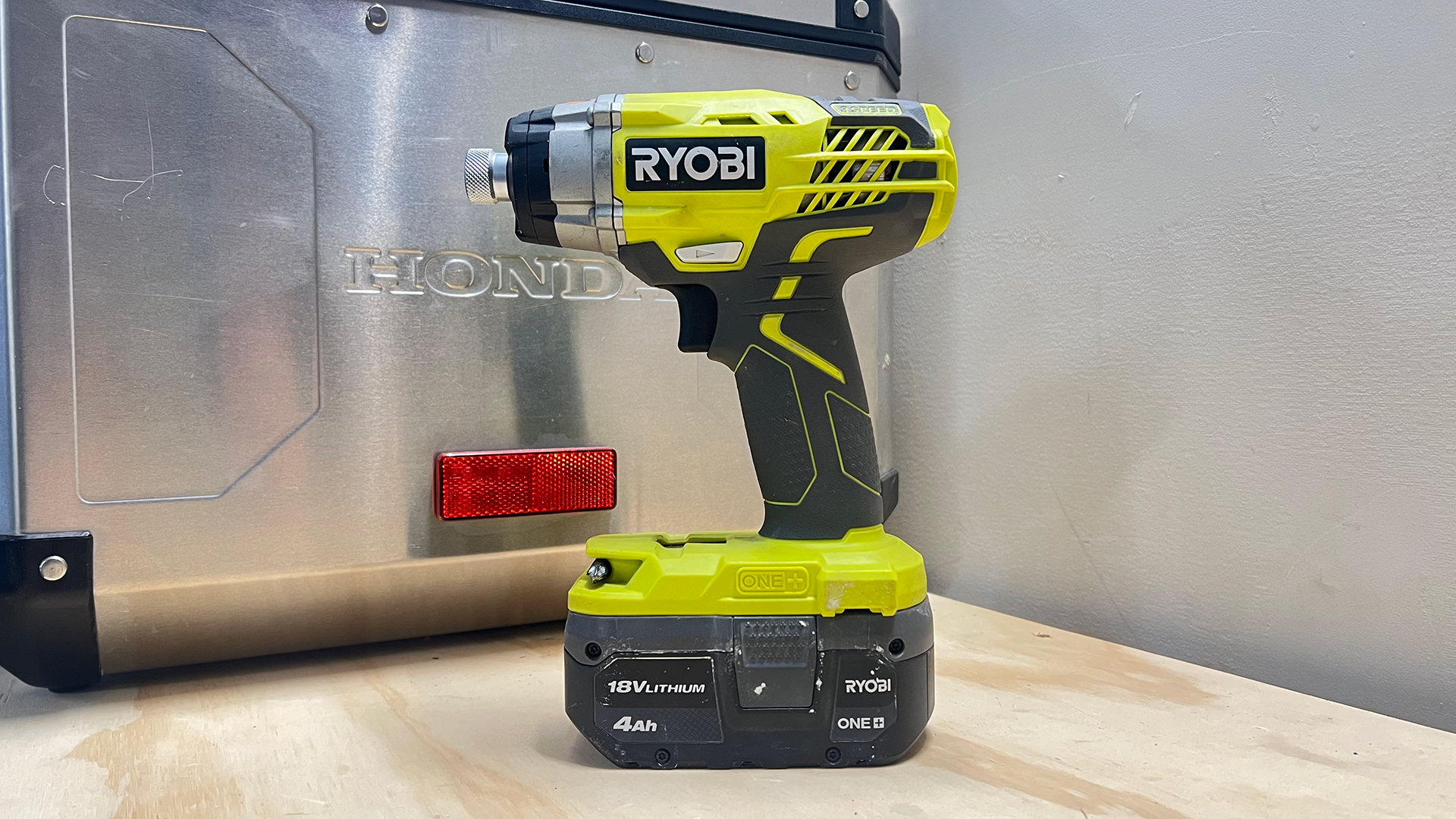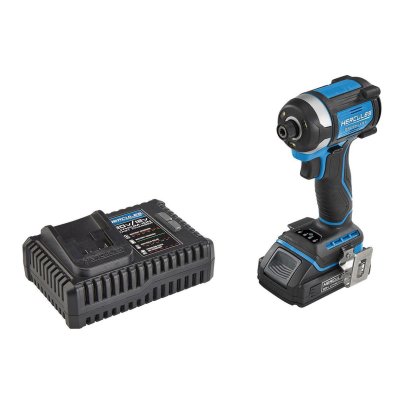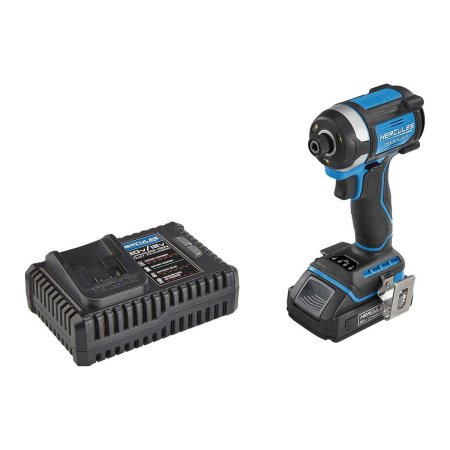We may earn revenue from the products available on this page and participate in affiliate programs. Learn more ›

You need an impact driver. Sure, an impact wrench is going to be your right hand when it comes to powering through stubborn fasteners. But an impact driver is there to fill the void between an impact wrench and a drill, which is much larger than you might initially think. It’s the perfect fit for the countless small fasteners you run into during routine tinkering.
So much so that it will bounce around both the house and garage, prompting you to wear it on your hip because that’s easier than having to track it down every time you decide to toy with something. Which do you need? We’re here to help you figure it out. We’ll talk through what you need to know about these underrated power tools and drop some recommendations along the way.
Summary List
- Best Overall: Milwaukee M18 Fuel 18V Impact Driver Kit
- Best Value: Hercules 20V Impact Driver Kit
- Honorable Mention: Ryobi ONE+ HP 18V Impact Driver Kit
- Best Kit: Milwaukee M12 FUEL 12-Volt Li-Ion Impact Driver Combo Kit
- Best Compact: DeWalt Atomic 20V MAX Impact Driver Kit
Our Methodology
Impact drivers are a part of our daily lives. If we’re not out in the garage using our own impact drivers, we’re reading into what’s new and what others have to say about the ones they’ve been using. That doesn’t mean we just go off the cuff when putting this buying guide together. While experience is certainly a factor, plenty of research is done to ensure anything we recommend is truly worthwhile.
Best Impact Drivers Reviews & Recommendations
Best Overall
Milwaukee M18 Fuel 18V Impact Driver Kit
Best Value
Hercules 20V Impact Driver Kit
Honorable Mention
Ryobi ONE+ HP 18V Impact Driver Kit
Best Kit
Milwaukee M12 Fuel 12-Volt Li-Ion Impact Driver Combo Kit
Best Compact
DeWalt Atomic 20V MAX Impact Driver Kit
Our Verdict on the Best Impact Drivers
Again, the Milwaukee M18 Fuel 18V Impact Driver Kit is our top pick. The quality and performance are just tough to beat. However, it’s hard to go wrong with Hercules 20V Impact Driver Kit wherever a tight budget is a limiting factor.
What to Consider When Buying Impact Drivers
It’s a good thing if you haven’t made up your mind yet. Making an educated decision is always better than jumping on the first thing that’s recommended to you. The following tips will get you up to speed on what makes one impact driver better than another so you can determine which best fits into your tool box.
Key Features
RPMs
RPMs refer to the speed at which the tool can operate. The higher the number, the faster it can fasten or loosen hardware. This does factor into how quickly you can work, but it only tells part of the story. It doesn’t factor in the tool’s speed under load. Still, it’s a good number to refer to when reading through the specs, and a bigger number here is usually a good thing.
Torque
The torque rating is the other detail you need to look at to gauge an impact driver’s performance. All the RPM in the world won’t do you any good when the going gets tough. Torque is the power that drives fasteners through hard materials. A higher number here will also help an impact driver work more quickly under load, so you want to make sure a high rpm rating is backed by high torque for optimal performance.
Brushless Motor
A brushless motor is one of the best choices you can make when you’re considering different impact drivers. A driver with a brushless motor doesn’t need carbon brushes to deliver a current; instead, an internal circuit does that work. This kind of motor increases your driver’s workload and efficiency — which makes for a better overall tool. A brushless motor can lead an impact driver to have multiple speed settings, run longer on a single charge, and prevent issues like overheating.
Variable Speed Settings
You’re dealing with small fasteners. Going all-out all the time will cause problems. While variable speed triggers and different modes to work with may seem like standard features on power tools, it’s always wise to verify their presence. They become more important as power levels increase, so you’ll want to be mindful of them as you shop and every time you get to work. Otherwise, stripped fasteners will be far too common for comfort.
Impact Driver Pricing
Impact drivers exist on a pretty broad price spectrum. They can list anywhere from $50-$300. Generally speaking, anything suited for DIY work and some professional work will list around between $100-$200, with professional-grade tools sitting in the $200-$300 range. Of course, performance, quality, and unique features are going to determine what you pay.
FAQs
You have questions. The Drive has answers.
An impact driver can be used for a long list of tasks, but is particularly well-suited for driving long fasteners through hard materials.
A drill and an impact driver seem pretty similar, but they have different uses. Your basic drill is meant to be an all-purpose tool, using standard and hex bits to drive all kinds of fasteners into place. An impact driver, on the other hand, has increased torque, power, and speed. Also, an impact driver can be used for tasks that need more force but aren’t as precision-based as those that call for a drill.
Most impact drivers take 1/4-inch hex shank bits, so they’ll work with a very common bit size.







